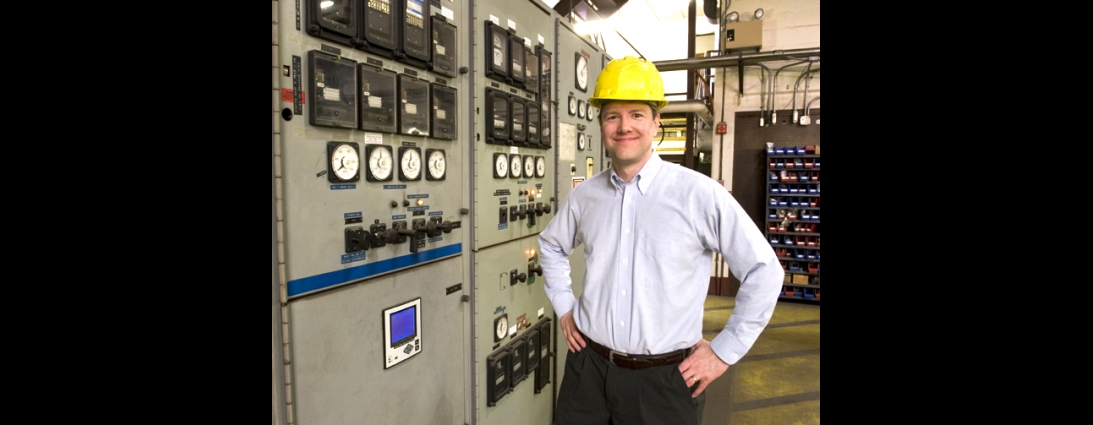

The right combination of technologies is key to avoiding financial risks
When Qualcomm Incorporated, decided to take greater control of energy consumption at its San Diego locations, the technology selected was combined heat and power (CHP) gas turbines, among the most efficient energy sources available because in producing electricity it also provides thermal energy.
Today, Qualcomm’s three CHP systems deliver more than 13.5 megawatts of reliable, ultra-high-efficiency electricity that meets up to 90 percent of building needs and produces waste heat to run absorption chillers that provide cooling for the facilities and data centers. The company’s satisfaction with the systems has resulted in a decision to add another 4.3-megawatt CHP system in 2014, according to Gail Welch, Qualcomm’s senior sustainability manager.
“We’ve learned that executing significant energy investments requires transparency among corporate staff, access to data and energy experts who are on your side that can navigate the clean energy landscape with confidence,” Welch said. “Projects like this are an integral part of Qualcomm’s efforts to be more sustainable by increasing energy efficiency and reducing our carbon footprint while cutting costs.”
Savings for all businesses
While small- or medium-sized business may not have the same scale of needs or resources as an international telecommunications titan, there are many readily available ways to cut energy use, save on utility bills and be more environmentally friendly. The key is finding a balance of energy efficiency, renewable energy and utility rate choices that align with your business goals and expected return on investment.
Unfortunately, business owners and managers often feel overwhelmed when considering energy efficiency and renewable energy projects due to the abundance of options and the pitfalls of risky decisions. That’s because today’s landscape of utility tariffs, incentive programs, tax credits and emerging technologies can be confusing and intimidating.
CSE can find solutions
In the San Diego region, businesses can look to experts at the CSE for help in navigating the process of identifying strategies for efficient and clean energy solutions. As an independent, not-for-profit organization, CSE assists businesses in assessing the technical, operational and financial merits of energy projects.
“CSE offers businesses, building owners and facility managers unbiased, independent information that has only the best interests of our clients in mind,” said Jeremy Del Real, a CSE energy engineer. “Our strength lies in discovering solutions that will be not only cost effective to implement, but also provide shortened project payback periods.”
Del Real points out that all projects should begin with implementing energy efficiency measures that not only reduce consumption and utility costs, but also lower power requirements so that self-generating systems can be scaled down to create even greater savings.
CSE examines four basic technology areas to help business owners and managers evaluate and implement clean energy projects. Also listed are the available rebate programs that reduce up-front costs. In addition, for most technologies there are federal tax incentives or renewable energy tax credits.
Self-generation
Self-generation refers to technologies that produce power on site to help offset your electrical load. It’s local electricity produced where it’s consumed. There is a wide range of self-generation technologies, and the one that’s right for you depends on your unique load profile and energy objectives.
In San Diego, CSE provides technical and financial assistance to businesses interested in wind, waste energy recovery, pressure reduction turbines, fuel cells and advanced energy storage as well as CHP. The Self-Generation Incentive Program offers substantial cash incentives based on the technology installed, the fuel used and the generating system capacity that range up to hundreds of thousands of dollars or more.
Solar water heating
Solar water heating systems capture the warmth of the sun, transfer that heat to water, and work with a conventional water heater or boiler to help it use less energy. Retirement communities, restaurants, gyms, hotels/ motels and other businesses such as commercial dishwashers and heavy duty laundries demand high volumes of heated water and can benefit greatly from installing a solar water heating system. In addition, solar thermal systems are used for industrial processes, building space heating and cooling as well as other uses.
CSE issues rebates for solar water heating and other solar thermal applications through the California Solar Initiative – Thermal Program that can make purchasing and installing a system considerably more affordable. Rebates also are available for solar heaters at commercial swimming pools. Depending on the system installed and the estimated energy savings, rebates for replacing natural gas water heating systems run up to $500,000.
Solar electric systems
Solar photovoltaic (PV) systems, also known as rooftop solar, are a reliable and effective way to lower or eliminate monthly energy bills and significantly reduce a company’s carbon footprint. The cost of solar PV has decreased by nearly 50% since 1998, with commercial systems typically costing $3-7/watt installed – the larger the system, the lower the cost.
CSE offers California Solar Initiative cash rebates for on-site PV for commercial, industrial and agricultural installations that vary in value depending on whether the rebate is based on expected output or on actual performance. While the rebates have declined with the cost of solar, the long-term financial value of solar PV is still very substantial.
Clean vehicles
If your company owns one car or a fleet of vehicles, you should consider clean vehicle options that offer fuel savings and fewer tailpipe emissions. Alternative fuel vehicles, ranging from passenger cars to heavy-duty trucks, are particularly well suited to commercial use because they provide lower operating and maintenance costs.
As statewide administrators of the Clean Vehicle Rebate Project, CSE issues cash incentives of up to $2,500 for purchasing or leasing certain zero-emission vehicles. CSE transportation experts also are available to help businesses and government agencies to green their vehicle fleet operations with customized analyses that can show the benefits of a cleaner fleet such as satisfying environmental regulations and achieving cost savings
Why CSE?
CSE staff offers unbiased, expert advice and guidance regarding energy management decisions that help businesses find the right solutions. These technical advice services are especially ideal for companies or institutions with large facility portfolios and a motivation to become more environmentally friendly and energy independent. While CSE is a statewide organization, it specializes in energy services for the San Diego region.
For more information, contact CSE at www.energycenter.org/greenbusiness or call (858) 244-1177 to speak to an energy expert about our business resources.
